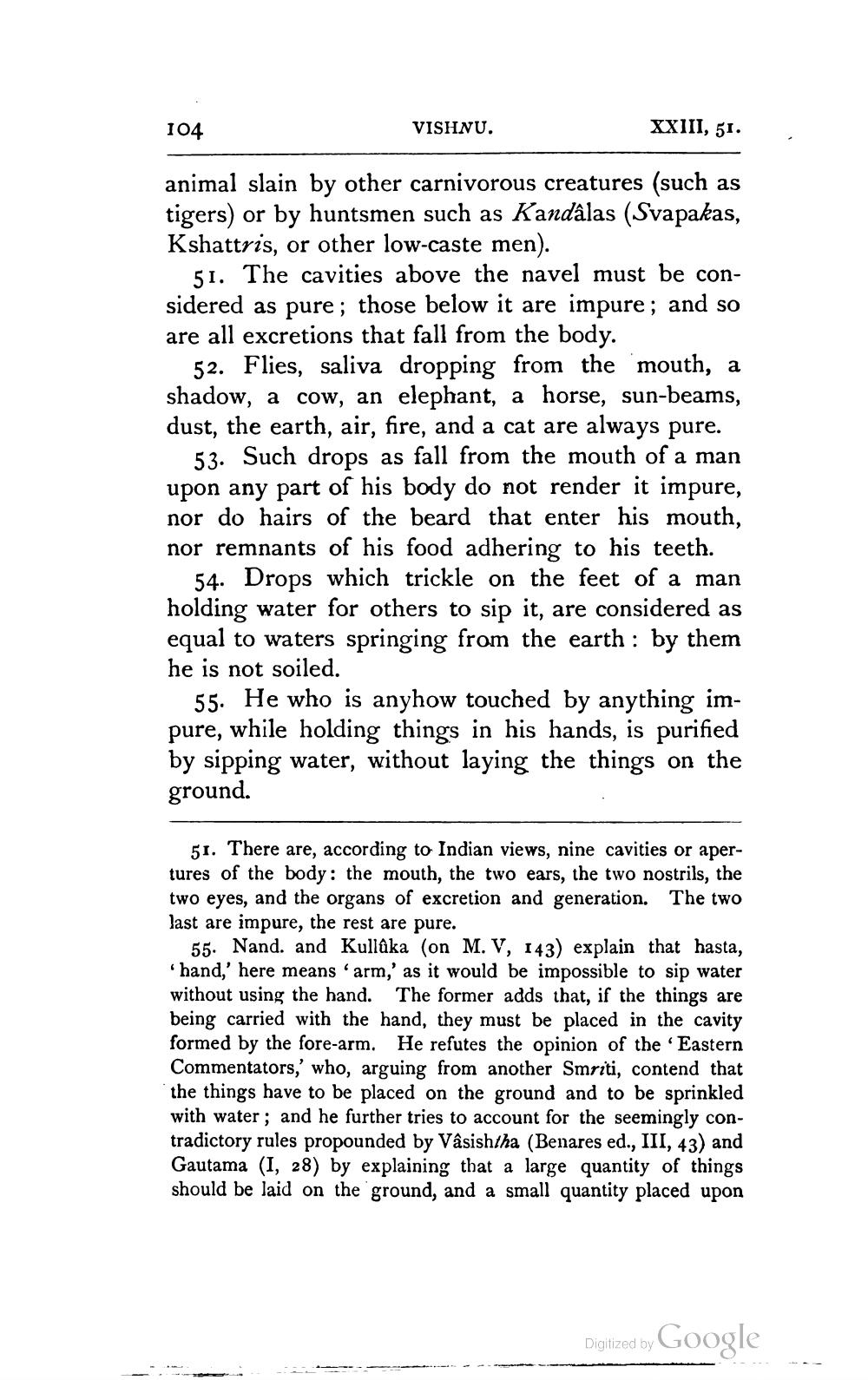________________
104
VISHNU.
XXIII, 51.
animal slain by other carnivorous creatures (such as tigers) or by huntsmen such as Kandalas (Svapakas, Kshattris, or other low-caste men).
51. The cavities above the navel must be considered as pure; those below it are impure; and so are all excretions that fall from the body.
52. Flies, saliva dropping from the mouth, a shadow, a cow, an elephant, a horse, sun-beams, dust, the earth, air, fire, and a cat are always pure.
53. Such drops as fall from the mouth of a man upon any part of his body do not render it impure, nor do hairs of the beard that enter his mouth, nor remnants of his food adhering to his teeth.
54. Drops which trickle on the feet of a man holding water for others to sip it, are considered as equal to waters springing from the earth : by them he is not soiled.
55. He who is anyhow touched by anything impure, while holding things in his hands, is purified by sipping water, without laying the things on the ground.
51. There are, according to Indian views, nine cavities or apertures of the body: the mouth, the two ears, the two nostrils, the two eyes, and the organs of excretion and generation. The two last are impure, the rest are pure.
55. Nand. and Kullûka (on M. V, 143) explain that hasta, "hand,' here means 'arm,' as it would be impossible to sip water without using the hand. The former adds that, if the things are being carried with the hand, they must be placed in the cavity formed by the fore-arm. He refutes the opinion of the Eastern Commentators,' who, arguing from another Smriti, contend that the things have to be placed on the ground and to be sprinkled with water; and he further tries to account for the seemingly contradictory rules propounded by Vâsishtha (Benares ed., III, 43) and Gautama (I, 28) by explaining that a large quantity of things should be laid on the ground, and a small quantity placed upon
Digitized by Google




